Publications
Articles, publications, books, tools and multimedia features from the U.S. Institute of Peace provide the latest news, analysis, research findings, practitioner guides and reports, all related to the conflict zones and issues that are at the center of the Institute’s work to prevent and reduce violent conflict.
Question And Answer
Amid a Changing Global Order, NATO Looks East
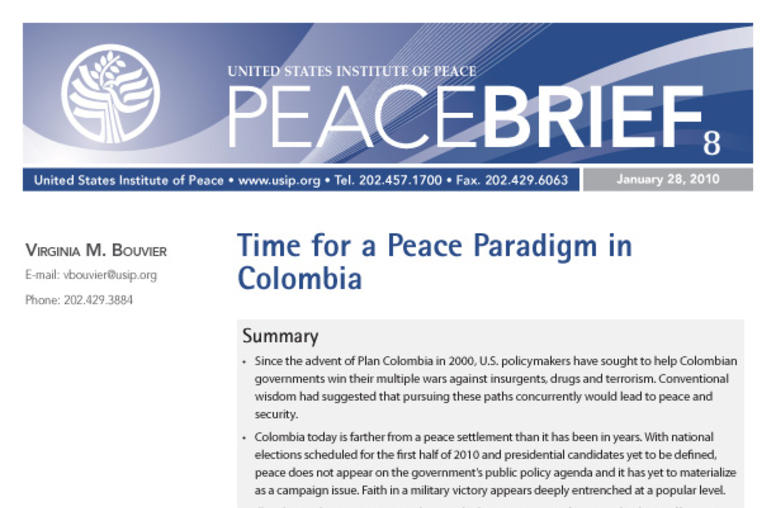
Time for a Peace Paradigm in Colombia
With congressional and presidential elections respectively scheduled for March 14 and May 30, 2010, electoral politics in Colombia will shape the prospects for peace in the coming months. Peace does not appear on the government’s public policy agenda and it has yet to materialize as a campaign issue.
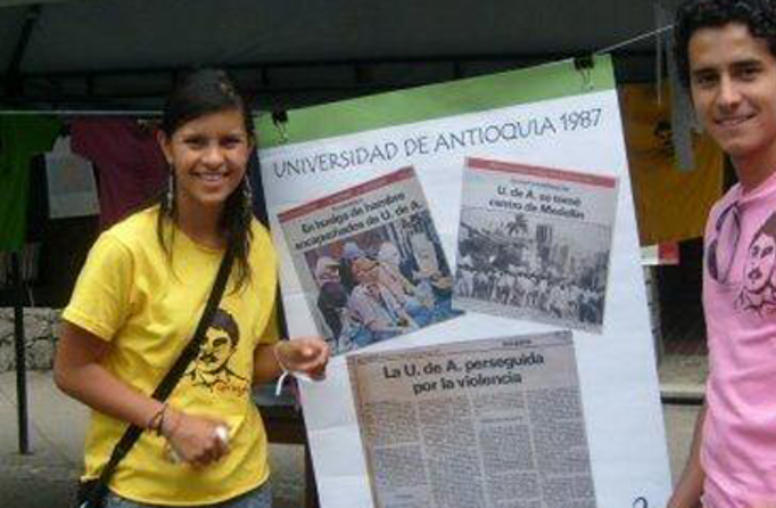
Strengthening the Capacity of Youth to Build Peace in Colombia
Through a grant to Hijos e Hijas por la Memoria y Contra la Impunidad (Sons and Daughters for Memory and Against Impunity), USIP is strengthening a youth organization dedicated to promoting a peaceful resolution to Colombia's conflict, supporting young people’s desire to serve as leaders for peace in Colombia, and helping to develop the peace-making capacities of the younger generation.
A Historical Case Study of Violence in Colombia
Colombia’s National Committee of Reparation and Reconciliation (CNRR) established a Historical Memory Group, an independent, autonomous unit of 14 respected academics charged with producing an account of the origins and evolution of Colombia’s internal armed conflict, giving special attention to the perspectives of victims. USIP has been supporting the work of the gender unit of the Historical Memory Group.
Demobilization and Reintegration of ExCombatants in Colombia
With the support of USIP, the Fundación Antonio Restrepo Barco developed a model psycho-social treatment program for 100 ex-combatants. Three professional counselors trained a group of thirty ex-combatants from the Caribbean coastal region in strategies to assist in their own social reintegration and to train them as peer counselors.
Citizens’ Commission for Reconciliation
USIP supported the work of SEMBRANDOPAZ to launch a network in the North Atlantic coastal region of Colombia that creates and links eight departmental Citizens' Reconciliation Commissions (CCR). This network is a vehicle through which to promote and channel citizen participation around issues related to truth, justice, reparations, reconciliation, and reintegration, and to foster national reconciliation processes and debates at the local and regional levels.
Women’s Memories of War, Peace, and Resistance
USIP supported the gender unit of the Historical Memory Group (HMG) to develop a unique interdisciplinary and participatory methodology to produce the first official report of the HMG Gender Unit.
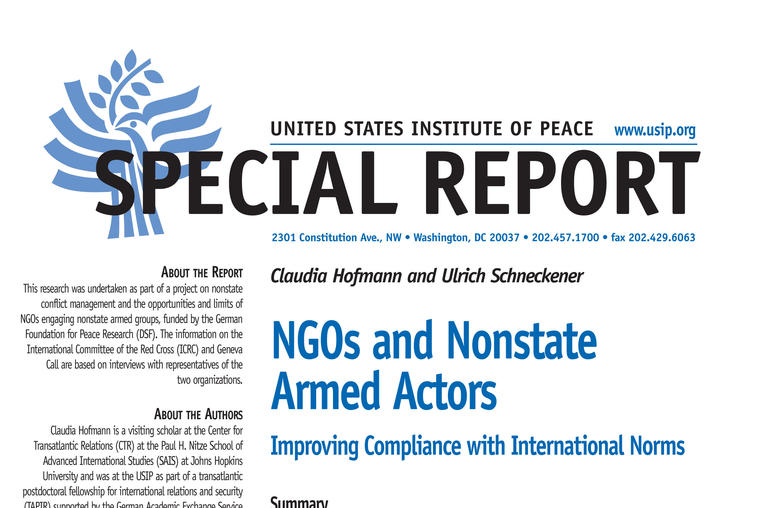
NGOs and Nonstate Armed Actors
Two seasoned NGOs engage nonstate combatants on international human rights law to get them to change behaviors, from eliminating use of landmines to protecting civilians. Their work can inform and complement other attempts at engagement.
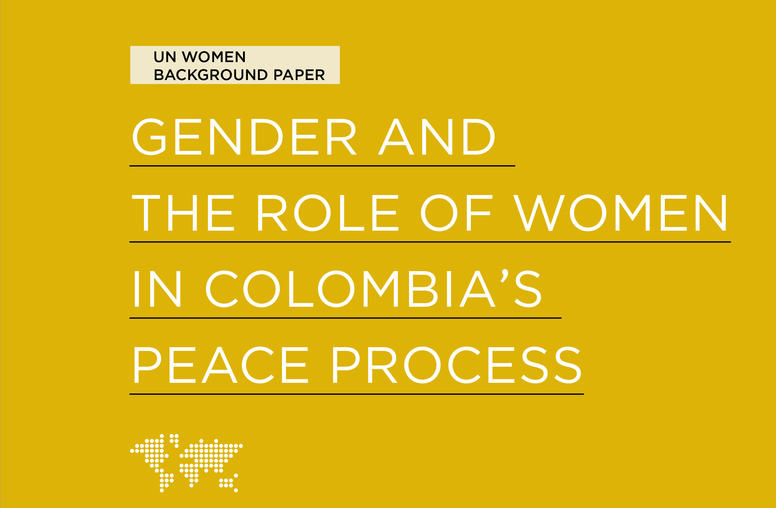
Gender and the Role of Women in Colombia's Peace Process
The promises and visions articulated in United Nations Security Council Resolution 1325 and subsequent UN resolutions and position papers that recognize the connection between gender equity and women’s participation in all aspects of peace processes and peacebuilding on the one hand, and international peace and security on the other, have not been fulfilled. Nonetheless, these resolutions have opened the way for advocacy that has had some successes in specific contexts. Colombia offers one su...
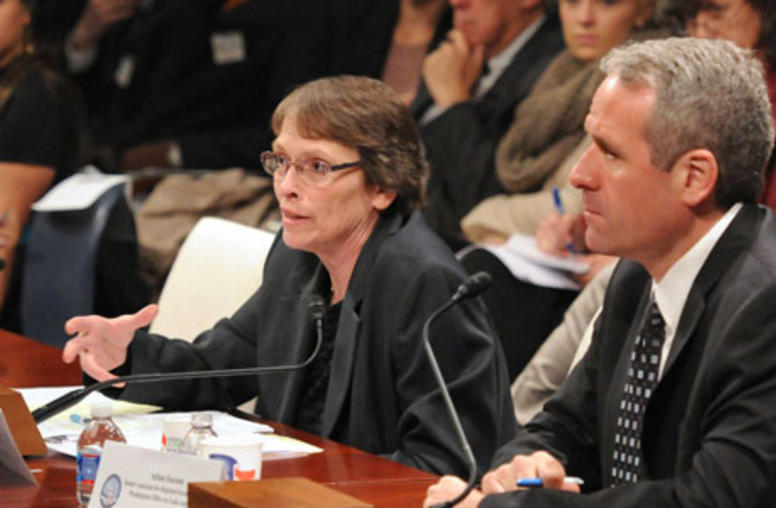
Human Rights and the Colombian Peace Process
Dr. Virginia M. Bouvier, senior program officer for Latin America at USIP, gave the following testimony before the Tom Lantos Human Rights Commission, U.S. House of Representatives
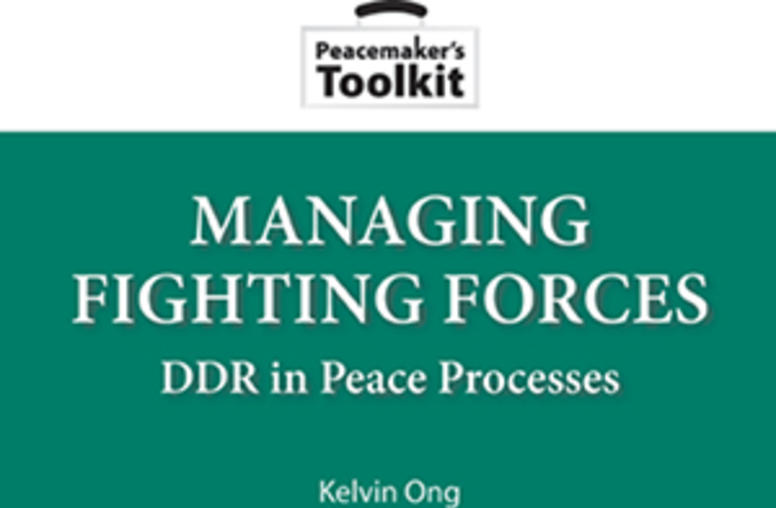
Managing Fighting Forces: DDR in Peace Processes
Providing guidance on the mediation and negotiation aspects of disarmament, demobilization, and reintegration (DDR) programs, this toolkit lays out eight detailed steps that mediators can take to establish appropriate linkages between DDR and other aspects of a peace process. This handbook is part of the Peacemaker’s Toolkit series, published by the United States Institute of Peace.